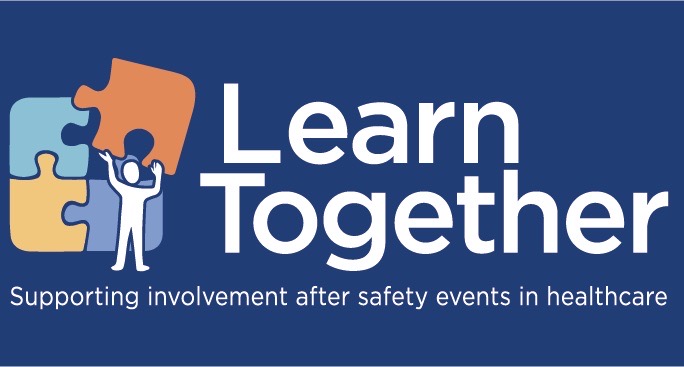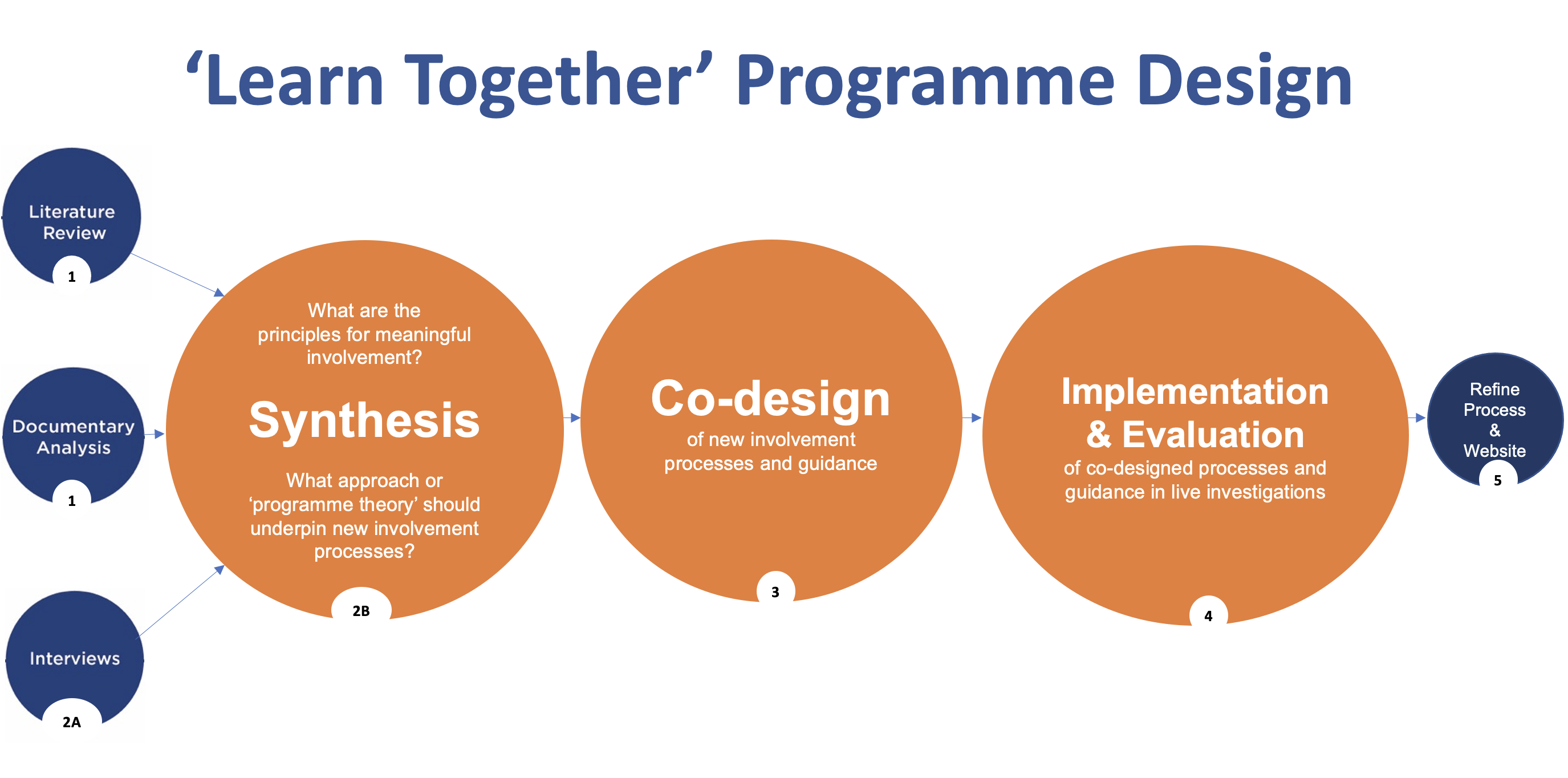‘Organisational learning’ is a key aim of investigations. Crucial to this learning is understanding patients’ and families’ perspectives on what went wrong. Whilst the importance of involving patients and families was underlined with the introduction of the Serious Incident Framework (2015), the evidence indicates that this does not routinely happen. This suggests that organisations are missing a key perspective in what went wrong, and begs the question: if we can involve patients and families better in investigations, can we improve organizational learning?

The ‘Learn Together’ project was awarded £894,000 by the National Institute for Health Research to co-design and evaluate new processes and resources to support more meaningful involvement of patients and families in serious incident investigations after healthcare incidents. Running from October 2019 to December 2022, the project is led by Professor Jane O’Hara and is hosted by Bradford Teaching Hospitals NHS Foundation Trust in conjunction with the Yorkshire Quality and Safety Research Group and the Yorkshire and Humber Patient Safety Translational Research Centre. The project team are working closely with four partner Trusts (Bradford Teaching Hospitals NHS Foundation Trust; York and Scarborough Teaching Hospitals NHS Foundation Trust; Bradford District Care Trust; Leeds and York Partnership Foundation Trust) and the national Healthcare Safety Investigation Branch (HSIB) on their maternity investigation programme. The project has been engaging with, and learning from, the experiences of everyone involved in investigations –patients, families, staff, investigators, policy makers, and other key stakeholders – to find out their needs during the investigation process. We have worked closely with a Patient and Family Advisory Group, a Staff Advisory Group and a 52-strong Stakeholder co-design community.
The programme is designed into five broad stages. In stage 1, we studied the academic and non-academic literature to understand how patients and families have been involved in serious incident investigations to date. We also analysed in depth the serious incident investigation policies of 45 NHS Trusts to explore how patient and family involvement was referred to and explained. In stage 2, we conducted interviews with patients, families, healthcare staff, investigators and lawyers about their experiences of and involvement in serious incident investigations.

Before co-designing a new involvement process, we synthesised all the intelligence we’d gained from our stage 1 and 2 research to understand what needs people had during an investigation, and what approach should underpin a great involvement process. We had two main findings. First, there was no guidance for Trusts in how to best involve patients, families and healthcare staff in serious incident investigations. Second, that serious incident investigations compound harm for patients, families and staff if involvement is poor or mishandled. This second finding in particular informed our approach to co-designing a new/better process, that investigations should support healing and restoration as well as learning – we termed this ‘Restorative Learning’. We synthesised the common, human needs within investigations into ‘10 common principles for meaningful involvement’. These 10 principles and our Restorative Learning theory underpinned Stage 3 co-design.
In stage 3, we worked with a 52-strong virtual stakeholder community across 6 months to co-design a new ‘Learn Together’ involvement process and accompanying resources. The resources include a Guidance Booklet and training for Investigators in the ‘Learn Together’ process, and Information Booklets for patients and families and healthcare staff.
We are currently in Stage 4, implementing and evaluating this new process and accompanying resources with the support of our four partner Trusts and the HSIB, in 25 live investigations. We are excited to announce that the ‘Learn Together’ process and guidance have already been incorporated into a first draft of NHS England and Improvement’s national involvement policy to accompany the new Patient Safety Incident Response Framework from June 2022. This national version of the process and resources will also be evaluated over the coming months. In stage 5, we will combine our learning from this national and local testing to inform a final national version of the process and guidance, and create a project legacy website.




